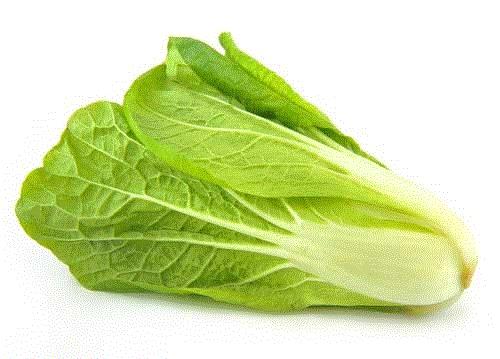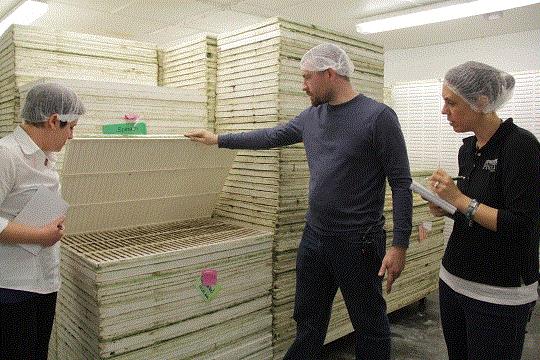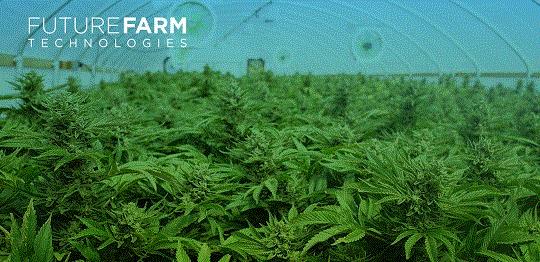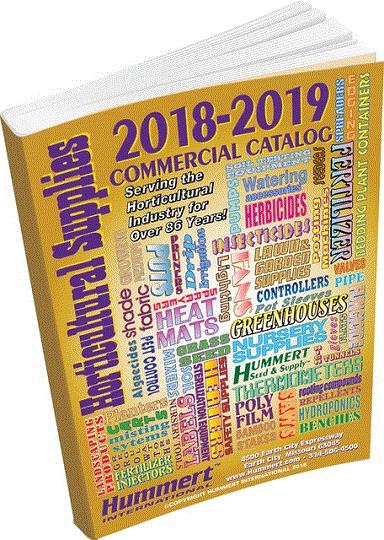When Did Romaine Become Public Enemy No. 1?
The news cycle works fast these days and it isn’t entirely accurate (how’s that for the understatement of the new year?) While not fake news, the romaine lettuce story in the U.S. has its nuance.
Here are the facts: right now the CDC and the USDA are investigating a multi-state outbreak of E. coli illnesses that appear to be traceable to a shared source of infection, according to the CDC. Meanwhile, the Public Health Agency of Canada also is investigating a multi-province outbreak of a similar nature.

“Whole genome sequencing is being performed on samples of bacteria making people sick in the United States to give us information about whether these illnesses are related to the illnesses in Canada. Preliminary results show that the type of E. coli making people sick in both countries is closely related genetically, meaning the ill people are more likely to share a common source of infection,” the CDC writes in a media statement on its website.
The Public Health Agency of Canada has identified romaine lettuce as the source of the outbreak there, but the CDC says it has yet to pinpoint a common food source among those reporting their illness, so the “CDC is unable to recommend whether U.S. residents should avoid a particular food.”
So where are media outlets getting their story to stay away from romaine in the U.S.? Most are quoting Consumer Reports, which has a food safety division and has advised consumers against eating romaine. You can read the full Consumer Reports story here.
An aside from the main story, there's a section in the Consumer Reports story on how lettuce can become contaminated with the strain of E. coli that can cause illness (0157:H7).
I found a couple of resources to pass along and we'll be continuing to look at food safety issues in upcoming Inside Grower supplements and in this newsletter:
Want to weigh in on the topic? Email me at jpolanz@ballpublishing.com.

A Visit to BrightFarms
Back before Christmas, my co-workers Jen Zurko (Managing Editor for GrowerTalks) and Allison Westbrook (Customer Service and Circulation Specialist—and editorial trainee) and I all made the drive out to Rochelle, Illinois, from the Ball offices to visit a BrightFarms hydroponic greenhouse location. We got the grand tour from Head Grower Nick Chaney and Allison wrote up a recap of our visit:
Nick took us through the process of growing their greens from seeding to harvest. At the Rochelle facility (they also have greenhouses in Culpeper, Virginia, and Bucks County, Pennsylvania), they grow kale, spinach, basil and greens mixes. The plants grow from seed in rectangular Styrofoam trays with trenches running along the length. These trenches taper toward the bottom, so only the root can touch the water and the seedling and media don’t fall through. These trays go into shallow rectangular pools in the greenhouse, floating atop carefully-calibrated, nutrient-rich water. They are automatically moved around according to stage of growth and removed when ready to harvest.

Allison Westbrook (left) and I (right) watch as BrightFarms Rochelle Head Grower Nick Cheney explains the proprietary Styrofoam raft system.
Nick explains to us that everything in the facility is grown pesticide-free. Instead of using chemical controls, yellow sticky tape hangs between supports in the greenhouse, trapping shoreflies. Predatory hawk calls echo throughout the greenhouse to chase away potential pests. Pest control while going pesticide-free can be challenging, and one of Nick’s next projects is building an ecosystem in the hydroponic system’s water with organisms to consume Pythium, rather than just relying on sterilization for control.
Bright Farms is serious about sanitation and has put in place practices for workers—hair nets, footbaths and frequent cleaning of surfaces. However, issues can still arise despite these preventative measures. Recently, a recall was issued for Bright Farms’ products in Mariano’s grocery stores (a Chicagoland chain), and we asked Nick about this issue. He told us that they test leaf tissue, water and surfaces continuously, and in this instance, they did find E.coli and issued a recall out of an abundance of caution. Advanced testing revealed that it wasn’t a strain that can make people sick. However, Nick said the proactive recall was for the safety of consumers and also to remove the product from their system, whether the strain was harmful or not.
Growing everything pesticide-free only adds to the challenge, and it seems that Nick is always brainstorming to stay one step ahead and thinking about new products they could grow next—he mentioned pea shoots, mustard greens, chard, beet greens and wheat grass. They also plan to release a green leaf/Iceberg hybrid called “Sunny Crunch,” which has the flavor of a green leaf and crunch of an Iceberg.
When asked about his future plans, Nick replied that he will be moving to Ohio to run the 160,000-sq. ft. greenhouse facility that Bright Farms is building in the greater Cincinnati area. Their growers move around their different locations, and come from Bright Farms’ apprentice program that is investing in the next wave of growers. This new facility will grow leafy greens and herbs and opens in early summer.
Thanks Allison! Look for BrightFarms to grace the cover of our Inside Grower supplement in February, where you can read more about the expansion plans of the operation.

Public Enemy No. 2?
Cannabis had been riding a high (sorry, couldn't resist) up until last week, when one memo caused an uproar among media and politicians.
Just days after California’s enormous recreational industry came online, U.S. Attorney General Jeff Sessions seemed to double down on marijuana regulation, rescinding an Obama-era policy that basically looked the other way when it came to enforcement in states that had it legalized.
According to MarketWatch, the stocks of cannabis-related companies “tanked” after the memo (read the full story here). However, a Forbes story notes that the stocks may just be a result of nervous “dabblers” in the industry and committed investors aren’t scared off by the announcement.
So what does the memo really mean? According to the U.S. Department of Justice website: “In the memorandum, Attorney General Jeff Sessions directs all U.S. Attorneys to enforce the laws enacted by Congress and to follow well-established principles when pursuing prosecutions related to marijuana activities. This return to the rule of law is also a return of trust and local control to federal prosecutors who know where and how to deploy Justice Department resources most effectively to reduce violent crime, stem the tide of the drug crisis and dismantle criminal gangs.”
Here’s the PDF of the memo, if you’d like to see the exact wording.
Time will tell what it actually means, but judging by the responses from mainstream media and politicians in states where recreational and/or medicinal marijuana is legal, it may not have much impact. The tide seems to have turned in favor of cannabis, particularly when Republican Senators are coming out against the announcement (based on this Washington Post story).

Future Farms Announces Expansion Plans
Just before Christmas, the Canada-based Future Farm Technologies announced it signed a lease agreement for 100 acres in northern Maine, and as part of that agreement, has the option to lease up to an additional 1,000 acres. It’s all to support the company’s prior purchase of a 120-acre licensed industrial hemp farm.

“The land under lease is organic and so all activity, equipment, practices and applications must follow the Organic Guidelines set forth by MOFGA (Maine Organic Farmers and Gardeners Association),” notes the press release.
Future Farm announced it's preparing to set up a hemp cloning operation, which uses vertical farming technology to supply more than 200,000 clones to the farm in 2018, all grown under the company’s Scorpion LED grow lights.
Hemp is closely related to marijuana, but only has a very small amount of the THC that provides the psychoactive effects of marijuana. Instead, it’s grown for its fibers, seeds and oil. In the case of Future Farm, “this lease agreement positions us in the hemp farming and CBD business for growing, researching, developing and selling organic hemp and CBD oil, which contain a broad range of cannabinoids used to treat a growing population of CBD oil consumers,” says Bill Gildea, CEO of Future Farm.
Future Farm also closed on an acquisition last week of a 10-acre greenhouse in Florida that’s approved at the county level for cultivating and processing cannabis. The family-owned greenhouse operation dates back to 1959 and had grown ornamental plants sold in big box stores.
Future Farm Technologies is based in Vancouver, British Columbia, and has projects throughout North America, including in Florida, California and Maryland.

Hummert Releases New Supply Catalog
The 2018-2019 Horticulture Supply Catalog from Hummert International is now available and features more than 800 pages of products and information for every sector of horticulture. It has hundreds of pages of chemicals, fertilizers, applicators, containers, media, safety equipment, irrigation equipment, greenhouse equipment, hydroponics, lawn and garden supplies, seeds and tools.

“Thousands of man hours went into updating product information, sourcing new vendors and making sure we provided our customers with the best possible prices,” says President Sonny Hummert. “I believe our team has done a tremendous job blending previous product lines our customers have come to enjoy with new vendors and the latest in horticulture technology.”
An interesting tidbit from the company—the catalog first published in 1934. That’s 84 years of offering hort products. You can request a copy of the newest catalog by calling (800) 325-3055 or by visiting www.hummert.com.




As always, feel free to email me at jpolanz@ballpublishing.com with comments, questions, news and views.
Until next time,

Jennifer Polanz
Editor-at-Large
Inside Grower
This email received by 26,202 loyal readers!
Interested in advertising in Inside Grower? Contact Paul Black or Kim Brown and they'll show you how easy, effective and affordable it is.